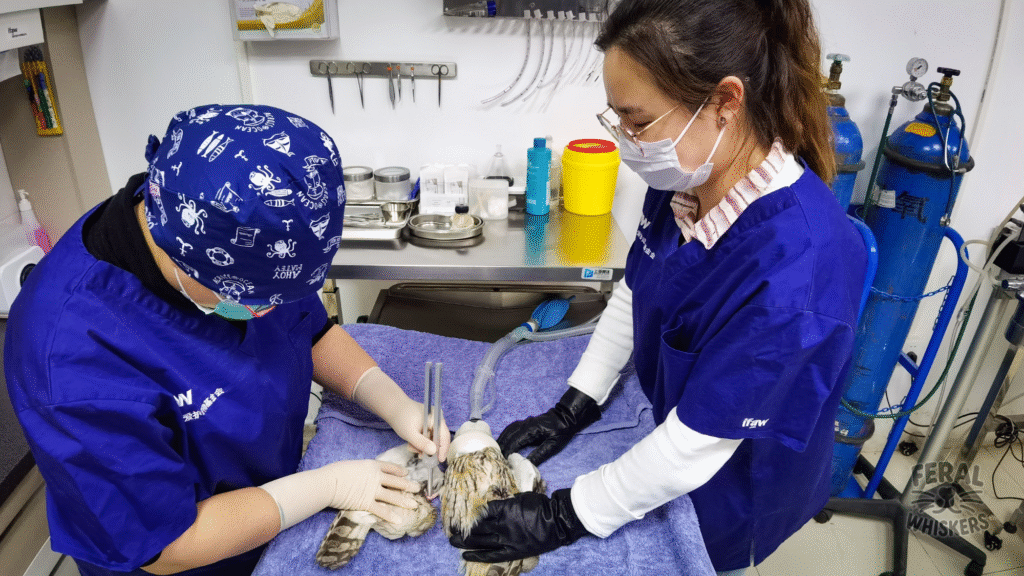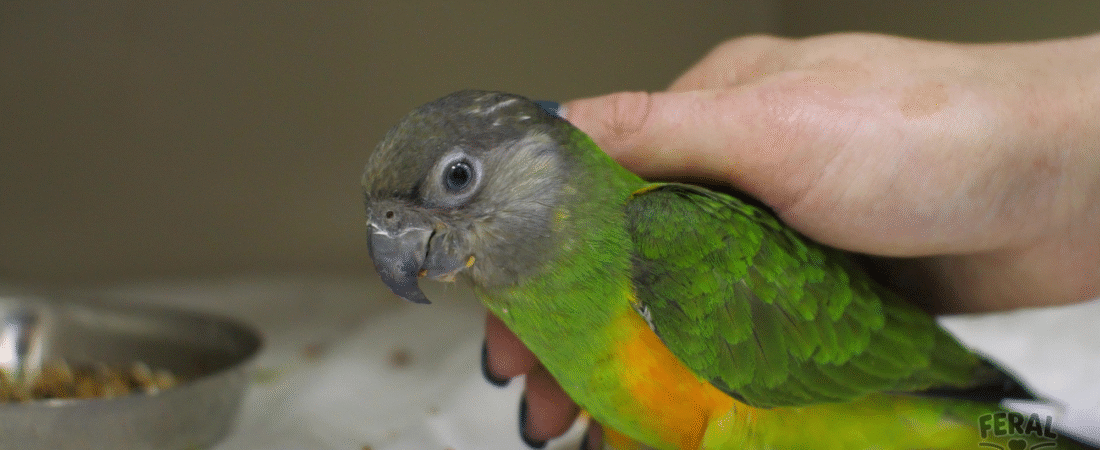Introduction: Why Early Detection Matters

Birds are masters at hiding illness. In the wild, looking weak makes them easy prey, so even pet birds instinctively mask symptoms. This means by the time a bird looks obviously sick, the illness may already be advanced.
As a bird owner, recognizing subtle signs of trouble is critical. Early detection — paired with prompt veterinary care — can literally save your bird’s life.
1. General Rule of Thumb
🌟 If you notice behavior that’s “not normal” for your bird, it’s worth a vet check.
Birds are creatures of habit. Even small changes in appetite, droppings, or activity are red flags.
2. Early Warning Signs of Sickness
2.1 Physical Signs
- Fluffed Feathers (all day, not just while resting).
- Tail Bobbing with each breath = respiratory distress.
- Discharge from eyes or nostrils.
- Beak or Feather Abnormalities: Dull, brittle feathers, overgrown beak.
- Changes in Droppings:
- Green/yellow urates = liver/kidney issues.
- Watery = infection or diet issue.
- Undigested food in droppings = malabsorption.
2.2 Behavioral Signs
- Unusual lethargy, drowsiness during the day.
- Loss of appetite or refusing favorite foods.
- Sudden aggressiveness or uncharacteristic quietness.
- Balance problems, wing droop, or sitting at the cage bottom.
- Reduced vocalization (quiet when usually chatty).
2.3 Weight Loss
- Birds can lose weight rapidly. Always monitor if they feel lighter in hand.
- A kitchen scale (grams) is one of the best prevention tools for bird owners.
3. Emergency Signs — Call a Vet Immediately
- Labored/open‑mouth breathing.
- Continuous tail bobbing.
- Bleeding or visible injury.
- Vomiting (not just regurgitation).
- Seizures or collapse.
- Not eating or drinking for more than 24 hrs.
4. Common Bird Illnesses
- Respiratory Infections: Symptoms include labored breathing, nasal discharge, sneezing.
- Psittacosis (Parrot Fever): Zoonotic disease (transmittable to humans). Causes lethargy, green droppings, breathing issues.
- Nutritional Deficiencies: From seed‑only diets (causing obesity, liver failure, weak bones).
- Aspergillosis (fungal infection): Caused by poor ventilation/hygiene.
- Egg Binding (females): Straining, swollen abdomen, sitting low or at cage bottom. Medical emergency.
5. When to See a Vet
- Annual wellness exams with an avian veterinarian are essential, even if the bird seems healthy.
- Fecal exams & bloodwork detect hidden issues early.
- Immediately if any warning or emergency signs appear.
6. Holistic Prevention: Keeping Birds Healthy
- Balanced diet: Pellets + fresh foods.
- Clean air: No Teflon, aerosols, smoke.
- Hygiene: Clean cages and bowls daily.
- Stress-free environment: Stable routines, enrichment toys, socialization.
- Natural sunlight/UV lighting for vitamin D and mood.
- Observation: Know your bird’s normal droppings, weight, and behavior.
7. Fun Facts
- Birds have a faster metabolism than many animals — which is why they decline very quickly when sick.
- A healthy parrot spends hours preening feathers daily; a sick bird often neglects grooming.
- Some species (like African Greys) are more prone to specific conditions (like hypocalcemia, or low calcium).
- Watching droppings is one of the simplest daily health checks.
8. FAQs
Q1: My bird looks a bit puffy. Should I worry?
If feathers are fluffed for hours and the bird seems inactive, yes — consult a vet.
Q2: Can I treat a sick bird at home with natural remedies?
No. Holistic aids (like herbs) may support wellness, but never replace avian vet care. Birds require specialized treatment.
Q3: What’s the difference between vomiting and regurgitation?
- Regurgitation = controlled, for feeding mate/toy, often paired with head bobbing.
- Vomiting = uncontrolled, messy, often flinging food, sign of illness.
Q4: Should I wait a day to “see if it gets better”?
No. Birds decline rapidly. Always seek vet care at first sign of sickness.
Q5: Do I need an avian vet, or can a dog/cat vet check my bird?
Always find a certified avian vet. Birds have unique anatomy and require specialized knowledge.
Final Takeaway
Owning a bird means watching closely for signs of illness — because these intelligent, beautiful animals rarely show weakness until they’re very sick.
✅ Know the early signs.
✅ Have an avian vet contact ready before emergencies.
✅ Provide holistic daily care to keep your bird strong.
With attentive care, most illnesses can be caught early and treated, giving your feathered friend a long, happy, and healthy life.

